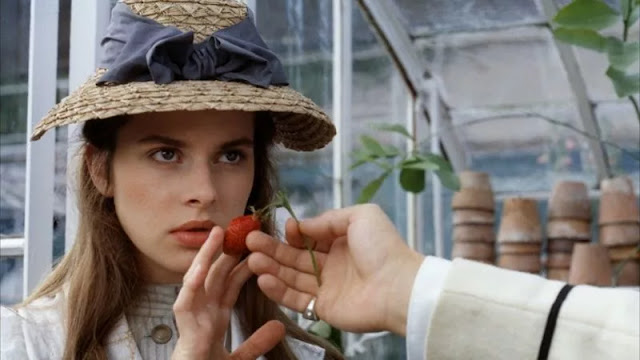‘It was only my whim,’ he (the parson) said; and, after a moment’s
hesitation: ‘It was on account of a discovery I made some little time ago,
whilst I was hunting up pedigrees for the new county history. I am Parson
Tringham, the antiquary, of Stagfoot Lane. Don’t you really know, Durbeyfield,
that you are the lineal representative of the ancient and knightly family of
the d’Urbervilles, who derive their descent from Sir Pagan d’Urberville, that
renowned knight who came from Normandy with William the Conqueror, as appears
by Battle Abbey Roll?’ ‘Never heard it before, sir!’ ‘Well it’s true. Throw up
your chin a moment, so that I may catch the profile of your face better. Yes,
that’s the d’Urberville nose and chin—a little debased.
Your ancestor was one
of the twelve knights who assisted the Lord of Estremavilla in Normandy in his
conquest of Glamorganshire. Branches of your family held manors over all this
part of England; their names appear in the Pipe Rolls in the time of King
Stephen. In the reign of King John one of them was rich enough to give a manor
to the Knights Hospitallers; and in Edward the Second’s time your forefather
Brian was summoned to Westminster to attend the great Council there. You
declined a little in Oliver Cromwell’s time, but to no serious extent, and in
Charles the Second’s reign you were made Knights of the Royal Oak for your
loyalty. Aye, there have been generations of Sir Johns among you, and if
knighthood were hereditary, like a baronetcy, as it practically was in old
times, when men were knighted from father to son, you would be Sir John now.’
‘Ye don’t say so!’ ‘In short,’ concluded the parson, decisively smacking his
leg with his switch, ‘there’s hardly such another family in England.’ ‘Daze my
eyes, and isn’t there?’ said Durbeyfield. ‘And here have I been knocking about,
year after year, from pillar to post, as if I was no more than the commonest
feller in the parish... And how long hev this news about me been knowed, Pa’son
Tringham?’ The clergyman explained that, as far as he was aware, it had quite
died out of knowledge, and could hardly be said to be known at all. His own
investigations had begun on a day in the preceding spring when, having been
engaged in tracing the vicissitudes of the d’Urberville family, he had observed
Durbeyfield’s name on his waggon, and had thereupon been led to make inquiries
about his father and grandfather till he had no doubt on the subject. ‘At first
I resolved not to disturb you with such a useless piece of information,’ said
he. ‘However, our impulses are too strong for our judgement sometimes. I
thought you might perhaps know something of it all the while.’ ‘Well, I have
heard once or twice, ‘tis true, that my family had seen better days afore they
came to Blackmoor. But I took no notice o’t, thinking it to mean that we had
once kept two horses where we now keep only one. I’ve got a wold silver spoon,
and a wold graven seal at home, too; but, Lord, what’s a spoon and seal? ...
And to think that I and these 7 noble d’Urbervilles
were one flesh all the time. ‘Twas said that my gr’t-granfer had secrets, and
didn’t care to talk of where he came from... And where do we raise our smoke,
now, parson, if I may make so bold; I mean, where do we d’Urbervilles live?’
‘You don’t live anywhere. You are extinct—as a county family.’ ‘That’s bad.’
‘Yes—what the mendacious family chronicles call extinct in the male line—that
is, gone down—gone under.’ ‘Then where do we lie?’ ‘At Kingsbere-sub-Greenhill:
rows and rows of you in your vaults, with your effigies under Purbeck-marble
canopies.’ ‘And where be our family mansions and estates?’ ‘You haven’t any.’
‘Oh? No lands neither?’ ‘None; though you once had ‘em in abundance, as I said,
for your family consisted of numerous branches. In this county there was a seat
of yours at Kingsbere, and another at Sherton, and another in Millpond, and
another at Lullstead, and another at Wellbridge.’ ‘And shall we ever come into
our own again?’ ‘Ah—that I can’t tell!’ ‘And what had I better do about it,
sir?’ asked Durbeyfield, after a pause.
‘Oh—nothing, nothing; except chasten
yourself with the thought of ‘how are the mighty fallen.’ It is a fact of some
interest to the local historian and genealogist, nothing more. There are
several families among the cottagers of this county of almost equal lustre.
Good night.’
[From Tess of the D'Urbervilles by Thomas Hardy]
The Parson's ill-judged words would cause serious trouble for Tess and her family: an example of noble forefathers who should have been left well alone.

No comments:
Post a Comment